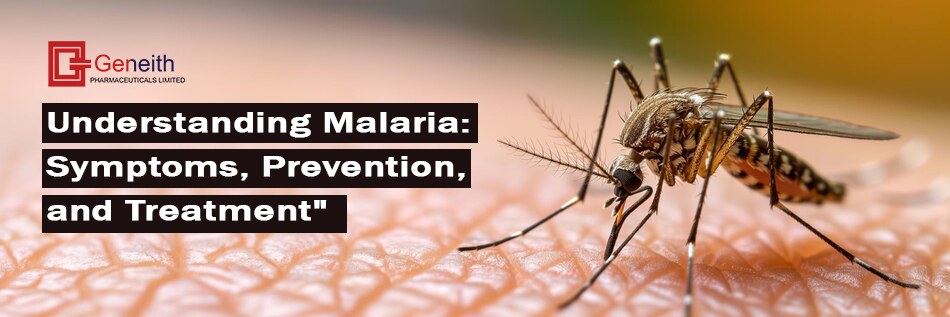What is Malaria?
Malaria is a life-threatening disease that spreads through the bites of some infected female Anopheles mosquitoes, primarily found in tropical regions. Malaria is a preventable and curable disease.
Malaria is not transmitted from person to person, and symptoms can be mild or life-threatening. Mild symptoms are fever, chills, and headache. Severe symptoms include fatigue, confusion, seizures, and difficulty breathing.
Infants, children under five years, pregnant women, travelers, and people with HIV or AIDS are at higher risk of severe infection.
Symptoms of Malaria
The most common early symptoms of Malaria are fever, headache and chills. Symptoms usually start within 10–15 days of getting bitten by an infected mosquito. However, because these symptoms can be mild, particularly in people with past infections, and can resemble other diseases, getting tested early is essential.
Severe malaria symptoms include:
- Extreme tiredness and fatigue
- Impaired consciousness
- Multiple convulsions
- Difficulty breathing
- Dark urine
- Jaundice (yellowing of the eyes and skin)
People with severe symptoms should get emergency care right away. Getting treatment early for mild Malaria can stop the infection from becoming severe.
Prevention of Malaria
Malaria can be prevented by avoiding mosquito bites and by taking preventive antimalarial medications.
Use mosquito nets when sleeping in places where mosquitoes are common. Use coils and vaporizers. Wear protective clothing. Use window screens, etc.
Treatment of Malaria
Malaria can be effectively controlled by prioritizing early diagnosis and treatment. This approach reduces the disease's severity and helps minimize its transmission. WHO recommends that all suspected malaria cases be confirmed using parasite-based diagnostic testing (through either microscopy or a rapid diagnostic test).
Malaria is a severe infection and always requires treatment with medicine. Multiple medicines are used to prevent and treat Malaria. Doctors will choose one or more based on:
- the type of Malaria
- whether a malaria parasite is resistant to a medicine
- the weight or age of the person infected with Malaria
- whether the person is pregnant, etc.
One of the best antimalarial medications in Nigeria is Camosunate Antimalaria by Geneith Pharmaceuticals Limited. Camosunate is a combination of Artesunate and Amodiaquine, approved by NAFDAC for treating Malaria.
Here's a breakdown of Camosunate dosages:
Camosunate Pediatric Powder (Below 1 year): 1 sachet of Amodiaquine (75mg) and 1 sachet of Artesunate (25 mg) per day for 3 days
Camosunate Children Powder (1-6 years): 1 sachet of Amodiaquine (150mg) and 1 sachet of Artesunate (50 mg) per day for 3 days
Camosunate Junior (7-13 years): 1 tablet of Artesunate (white) and Amodiaquine (yellow) to be taken once daily for three days.
Camosunate Adult (14 years and above): One tablet of Artesunate(white) and Amodiaquine (yellow) is to be taken twice daily for three days.
It is important to note that Camosunate is a prescription medication.
Availability
Camosunate is conveniently available in all pharmacy outlets throughout Nigeria.
Remember, early diagnosis and treatment are crucial for a successful recovery from Malaria. If you suspect you have Malaria, see a doctor immediately.


